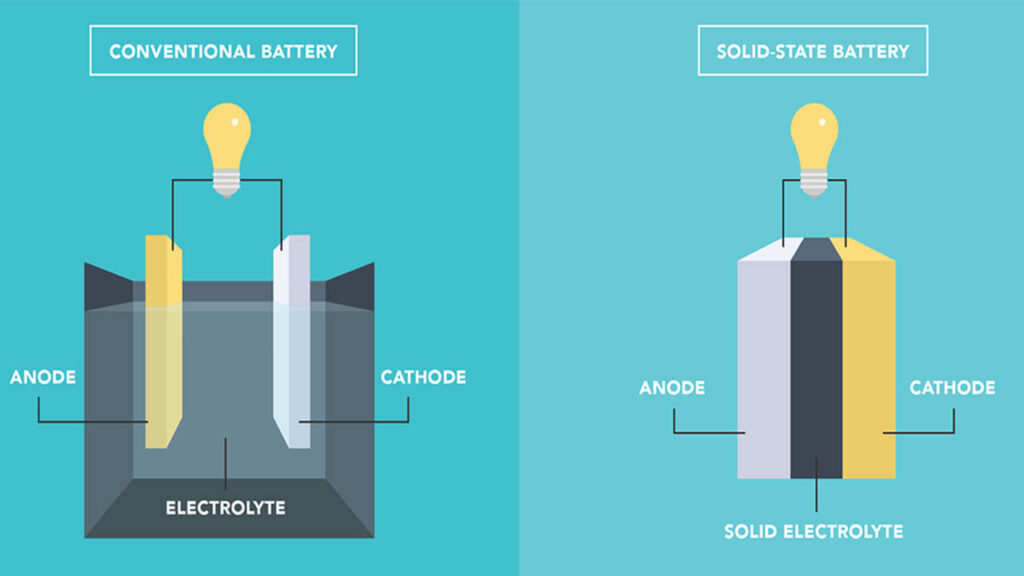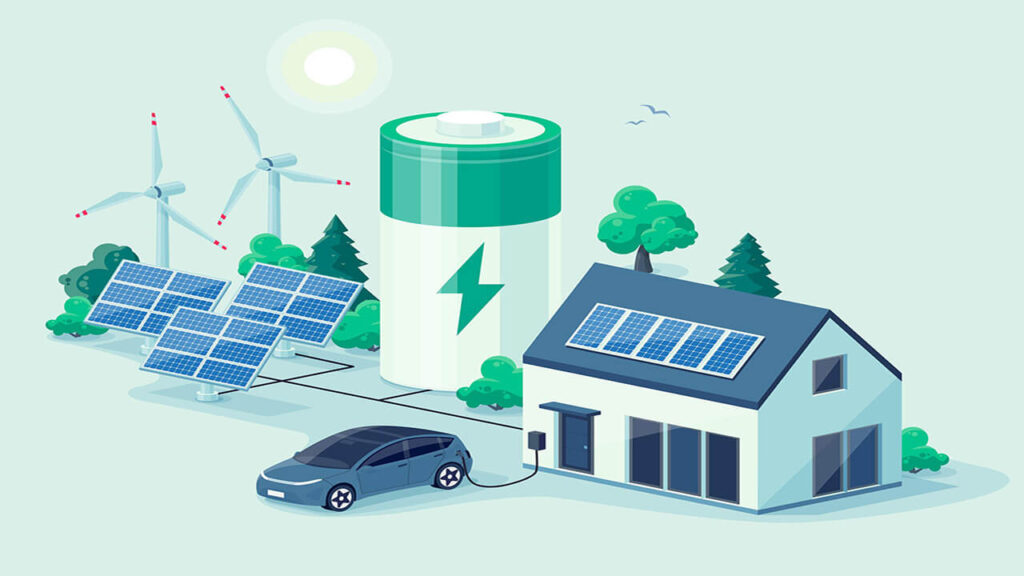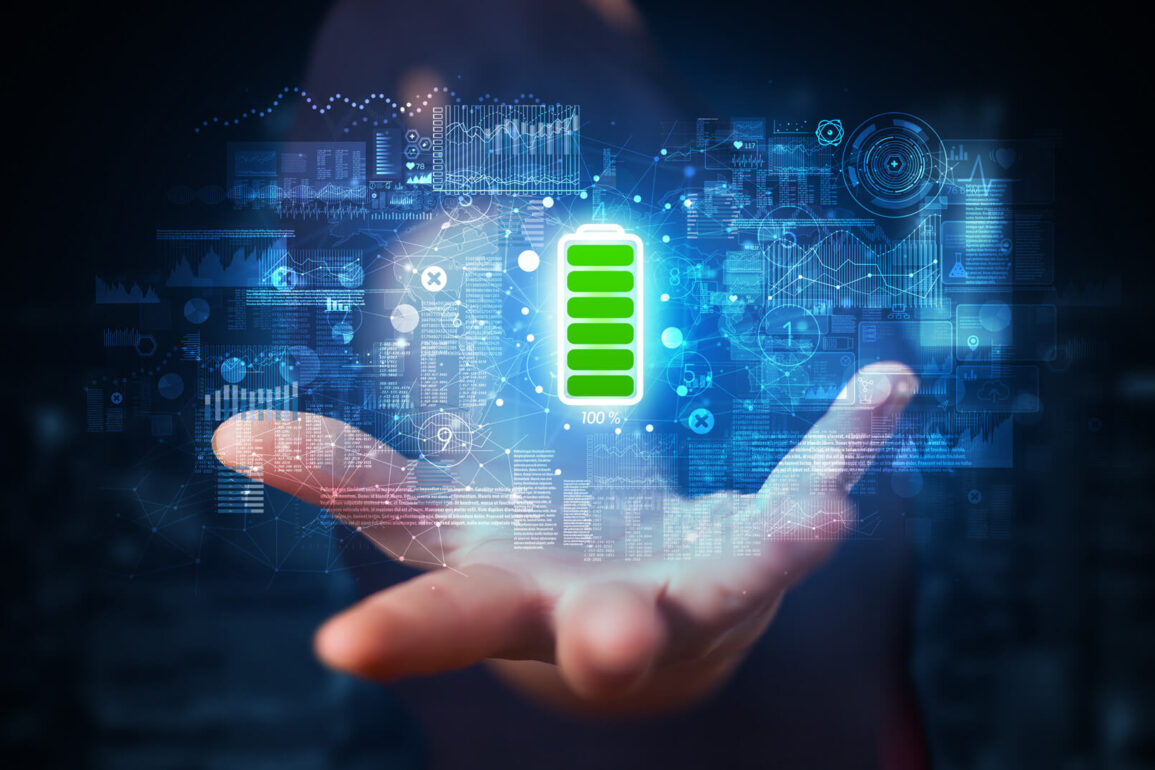In the realm of energy storage, one innovation is capturing the imagination of researchers, engineers, and industries alike: solid-state batteries. These cutting-edge powerhouses have the potential to redefine the landscape of battery technology, addressing limitations and pushing the boundaries of energy storage, safety, and sustainability. As the demand for efficient and reliable energy storage solutions grows, solid-state batteries emerge as a beacon of promise, offering advantages that could reshape various industries.
The Basics of Solid-State Batteries

At the core of solid-state batteries lies a fundamental difference from traditional lithium-ion batteries: the electrolyte. Instead of using a liquid electrolyte, solid-state batteries employ a solid electrolyte. This simple alteration introduces a range of benefits that have captured the attention of researchers:
- Enhanced Safety: Solid electrolytes are inherently less flammable and volatile than their liquid counterparts. This results in improved thermal stability, significantly reducing the risk of battery fires or explosions.
- Higher Energy Density: Solid-state batteries can potentially achieve higher energy densities, meaning they can store more energy in a smaller volume. This translates to longer-lasting devices or increased driving ranges for electric vehicles.
- Faster Charging: Solid-state batteries offer the potential for faster charging times due to their unique structure. The solid electrolyte allows for more efficient ion movement, facilitating quicker energy transfer.
- Longer Lifespan: Solid electrolytes are more resistant to the formation of dendrites, which can cause short circuits and degrade battery performance over time. This promises a longer cycle life for solid-state batteries.
Revolutionizing Electronics
Solid-state batteries hold immense promise for the electronics industry. Imagine smartphones that can go days on a single charge or laptops that can run for extended periods without needing to be tethered to an outlet. The higher energy density and faster charging capabilities of solid-state batteries could reshape how we interact with our devices, eliminating the need for frequent recharging and enhancing overall user experience.
Electrifying Transportation
Electric vehicles (EVs) are another sector poised for transformation through solid-state battery technology. One of the key challenges in EV adoption is the range anxiety associated with limited battery capacity. Solid-state batteries have the potential to significantly increase the driving range of EVs, making them more practical and appealing to a wider range of consumers. Additionally, the enhanced safety and longevity of solid-state batteries could contribute to the overall reliability and sustainability of electric mobility.
Renewable Energy Storage

As the world shifts towards greater reliance on renewable energy sources like solar and wind, energy storage systems become paramount. Solid-state batteries offer a reliable and efficient solution for storing excess energy generated during peak production times. This stored energy can then be discharged during periods of low renewable energy generation, ensuring a consistent power supply and reducing the reliance on conventional fossil fuel-based backup systems.
Challenges and Future Prospects
While the potential of solid-state batteries is immense, there are challenges that need to be addressed before they become widely accessible. Manufacturing processes need to be refined to ensure scalability and cost-effectiveness. Additionally, optimizing the performance and stability of solid electrolytes across different temperature ranges is a complex endeavor.
Collaboration between academia, industry, and policymakers is crucial to drive research, development, and adoption of solid-state battery technology. Advances in materials science, nanotechnology, and manufacturing techniques are essential to overcoming current limitations.
Conclusion
The evolution of energy storage is on the cusp of a monumental shift, and solid-state batteries are leading the charge. With the promise of enhanced safety, higher energy densities, faster charging, and longer lifespans, these batteries are set to transform industries ranging from electronics to transportation and renewable energy. As researchers continue to fine-tune the technology and overcome challenges, the day is not far when solid-state batteries become an integral part of our daily lives, enabling a more sustainable and electrified future. The journey toward this future is not just about harnessing energy; it’s about powering progress and innovation in ways that were once considered impossible.

